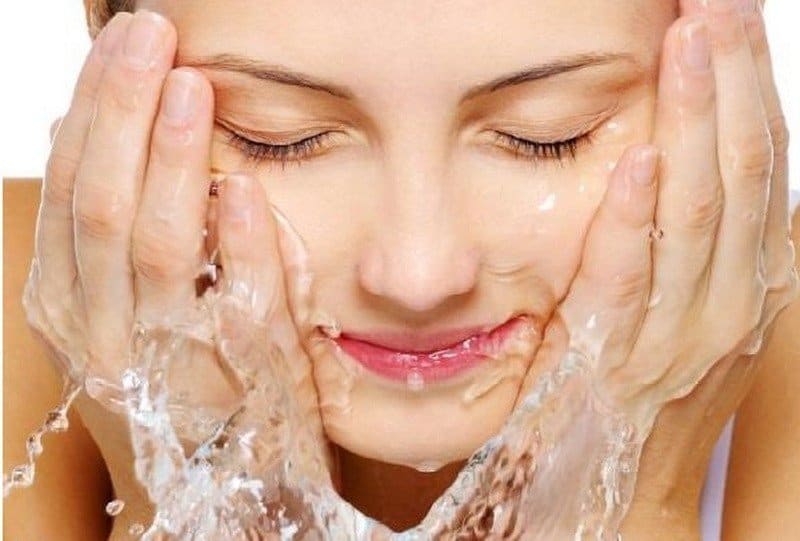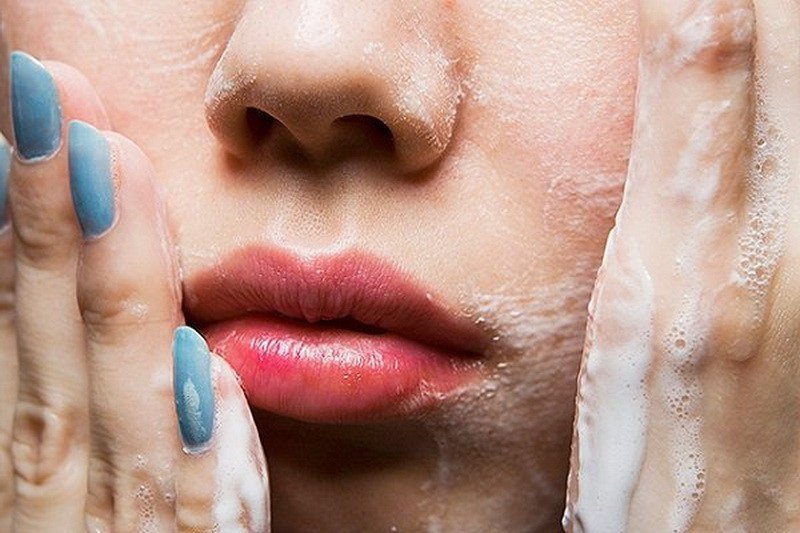We all wash our faces daily, but are we doing it the right way? Many of us have been making common face washing mistakes, which could potentially harm our skin in the long run. Washing our faces properly is essential to maintaining a healthy, glowing complexion, and avoiding issues such as dry skin or breakouts.
In this article, we will discuss some of the most frequent mistakes made while washing the face and provide valuable insights on how to correct them. By being mindful of these errors, we can make the necessary adjustments to our routines and ensure that our skin receives the care it deserves.
Chapter Overview
What Is The Right Cleanser?
To find the right cleanser, consider your skin type. For most, a gentle cleanser effectively removes dirt and grease without stripping natural nutrients. Those wearing makeup may benefit from a mild makeup remover like micellar water. For those with oily skin, try a cleansing balm or creamy cleansing lotion. Remember, investing in a high-quality cleanser ensures your skin stays healthy and radiant.
How Often To Wash Your Face?
It’s crucial to find the right balance when it comes to face-washing. We recommend washing your face just once per day. This frequency is sufficient for maintaining cleanliness, especially if your skin isn’t exposed to excessive dirt or time outdoors.
However, washing your face too often can cause it to dry out. This can strip the skin of its natural oils, leading to more harm than good. By sticking to a single daily wash, you can retain your skin’s essential moisture and enjoy a healthier, more radiant complexion.
Rinse Completely

We cannot stress enough the significance of thoroughly rinsing your face with water. A proper rinse washes away dirt, grease, and other impurities on the skin’s surface. Cover areas like the hairline, nose, and jawline, and ensure that no residue is left behind. Incomplete rinsing leads to clogged pores and a dry appearance. Follow these guidelines for a well-rinsed face:
- Use lukewarm water: This helps in gentle cleansing and proper rinsing.
- Splash water multiple times: Repeat splashing your face with water to eliminate any leftover residue.
- Pat dry: Gently pat your face dry with a clean towel.
How Warm Is Warm Water?
When considering the right water temperature for skincare, we must debunk the myth that hot water opens pores and cold water closes them. Instead, lukewarm water is the most suitable choice for cleaning our face. Combining lukewarm water with a good quality cleanser allows us to achieve optimal results. In summary:
- Hot water: Not recommended, can irritate the skin.
- Lukewarm water: Ideal for skincare, helps effectively clean the face.
- Cold water: Not as effective in removing dirt and oil.
Avoid Irritating Ingredients
When choosing facial cleansers for acne-prone and sensitive skin, it’s crucial to avoid products with:
- Colorants
- Fragrances
- Harsh cleansers
Opting for gentle and unscented options helps prevent irritation. We recommend looking for cleansers containing salicylic acid or glycolic acid to effectively treat acne without causing discomfort.
Do Not Over-exfoliate

We understand exfoliation is crucial to maintaining healthy skin. However, it’s vital not to overdo it. Over-exfoliating can lead to:
- Dry, dull skin: excessive exfoliation might give a counterproductive outcome.
- Tugging: our facial skin can show visible signs of distress.
To ensure proper exfoliation:
- Frequency: exfoliate gently, one or two times per week.
- Method: use your fingers, not clothes which can be damaging.
When To Moisturize?
We recommend moisturizing your skin right after cleansing it in the morning. Applying moisturizer at this time allows it to work effectively, penetrate deeper into the skin, and helps retain moisture throughout the day. This principle also applies to skin serums and treatments. In summary:
- Best time: after morning cleansing
- Benefits: faster absorption, deeper penetration, and all-day hydration
Remember to keep your skin hydrated and moisturized for a healthier complexion.
Pat, Do Not Rub
We recommend patting your face with a fresh, soft towel instead of rubbing to keep your skin healthy. Rubbing may feel good, but it can be harsh on your skin. Always make sure to use:
- A clean, soft towel to prevent the spread of bacteria
- A gentle patting motion, especially on the delicate neck area
- A separate washcloth for your face, maintaining proper hygiene
By patting your skin dry instead of rubbing, you can maintain a clean and beautiful complexion.
Quality Over Price

We believe that a top-notch cleansing routine should not be compromised by subpar products. Remember to allocate part of your monthly budget to high-quality skincare products. Here’s a brief overview of essentials for a successful routine:
- Commit to the right products for your skin type.
- Make daily sunscreen a non-negotiable practice.
By investing in quality over price, you’re truly investing in your skin’s long-term health.
Trust in Oils
Surprisingly, oils play a crucial role in managing oily skin. By incorporating the right oils in your routine, you can actually help balance your skin’s oiliness. Essential oils, such as coconut oil and Argan oil, are known to provide benefits for this skin type.
Here’s why you should trust oils for oily skin:
- Oils can help regulate excess sebum production
- Oils maintain a healthy moisture balance to prevent over-drying
- Some oils possess natural antibacterial properties, combatting acne
Therefore, do not underestimate the power of oils in your skincare routine. It’s just a matter of finding the right ones to suit your specific needs.

